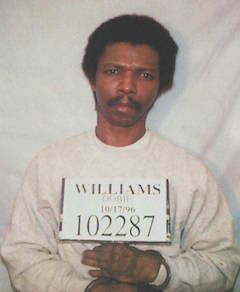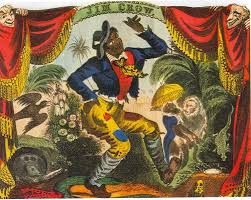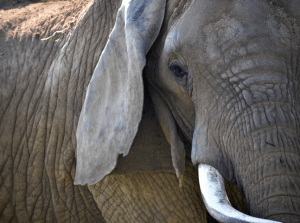Throughout the history of the United States, there have been tens of thousands of murders, rapes, and other heinous crimes. For over two-hundred years, the United States government intended to establish a fair and judicial system of justice. However, as countless cases of accused criminals have shown, our judicial system is not all that equal. As cases from the past prove, there have been instances where errors in the judicial system occur, resulting in unfair trials. Even worse, some of those inmates who have had unfair trials were convicted and in some cases, even sentenced to death row. So, is our judicial system all that just for all? In many cases it is just; however, in too many cases throughout our history, the system has been unfair to a number of accused individuals. An example of this is the trial of Dobie Williams, a young black man accused of the murder of a middle-aged white woman, Sonja Knippers on July 8, 1984. Dobie Williams had an unfair trial due to his race, few accommodations for his mental health, and an inept court-appointed attorney that he was provided.

Geography and race had a role to play in the unfair trial of Dobie Williams. Knippers was a white woman in her early forties, who was brutally killed in the bathroom of her southern home, located in Many, a small town in Lousiana, which was not a good place for Dobie, an African American, to be accused of murdering a white woman. Sister Hellen Prejean, a writer and a spirtual adviser for death row inmates, who accompanied Dobie throughout his trials and execution dates, explains that Dobie never had a fair trial due to being assigned an all-white jury during his hearing for the murder of Knippers; in addition, all of the judges, district attorneys, and the local media during the time were all white, further explaining possible prejudices that could stacked the odds against him. Many is a small town located in north central Louisiana, and it was not a city. It was a small, quiet, and mostly white town, where murder, or basically any other crime, was erratically unusual, especially in 1984, meaning that when crimes did happen, it was a huge deal. Consequentially, being a black individual accused of murdering a middle-aged white woman in a small town in the south was a bad situation to be in. We will never know for sure whether an all-white jury had anything to do with the conviction of Dobie Williams. But it still was not looking good for him, due to where the murder had taken place and the significance of the crime. In her book, Prejean, realizing the social injustices in Louisiana during the 1980’s, exclaimed that Dobie was, “in big trouble.”1 Prejean understood how geography had a role to play in the conviction of Dobie. Innocent or guilty, being a black minority during the time of Dobie’s trial in a small town located in the heart of the south was no easy thing to endure.

There are similar cases to Dobie’s in which a fair trial was not given because of such geography. In 1982 in Greenwood South Carolina, race played a significant role in the conviction of twenty-three-year-old Edward Lee Elmore, who was accused of the rape and murder of seventy-five-year-old Dorothy Edwards. According to Bishop Emmanuel Spearman, who was pastor to Edward, race played a major role in the trial.2 Spearman made a plausible statement about the trial because Edward, the African American, was accused of the murder of an elderly white woman in 1982, which was a severe offense. This could have given him an unfair trial due to the murder taking place in a small town in Greenwood, South Carolina, where just like Many, murder was rare. Something as significant as both murder and rape of an elderly white woman in a small, southern town would be considered heinous.
Dobie Williams did not have well-suited accommodations. In the 1980’s, individuals such as Dobie who had an IQ below 70, did not yet have the defense based on the Supreme Court case, Atkins v. Virginia, which ruled that capital punishment is unconstitutional for defendants with mental retardation.3 This meant that below average IQ could not be used in defense of Dobie Williams until the Supreme Court case was actually ruled. This can be related to Edward Lee Elmore, who had an IQ below 70, which made it difficult for him to understand the questions that were being asked while defending himself in a courtroom, when he was asked questions by district attorney, William T. Jones, who said, “You want this courtroom to believe you’re this quiet don’t you?”4 Edward lacked the competence to understand how to effectively defend himself while being asked harsh questions, due to being mentally handicapped. Furthermore, according to Celia B. Fisher, studies have demonstrated that “contribution to legal decisions concerning competency and predictions of future violence places the defendant at the mercy of an imperfect and unjust system.”5 The study shows that a defendant’s mental status is critical in the fate of that individual who is being accused of a heinous crime. Dobie Williams was a mentally-handicapped individual on trial for a severe act, and who was unable to properly defend himself, thus resulting in him to be at the mercy of a flawed judicial system.

Dobie Williams grew up in an impoverished childhood, giving him no other choice but to be assigned Michael Bonnette, his overworked public defender for his case, who had limited experience in death penalty cases, giving him an unfair trial. Sister Helen Prejean exclaims, “They know the difference in treatment given the O.J’s of the world in contrast with the NoJ.’s, forced to accept overworked, underfunded, or inept attorneys to defend them.” The fact of an incompetent, overworked, and underpaid attorney being assigned to Dobie, resulted in him making mistakes that affected the whole trial. During his trial, Dobie’s overworked public defender failed to successfully acquire any independent forensic testing, resulting in him being unable to provide a proper counter to the prosecutor’s claim against him. This mistake allowed for the argument against Dobie to be uncontested for thirteen years. Furthermore, it was Dobie’s financial situation that not only affected his opportunity to be assigned a more effective private attorney, but it also prevented him from having certain tests performed that could have aided him during his trial.6
There are other cases that explain the error of our judicial system. The trial of Dobie Williams is just one case out of too many that has been unfair. According to Sister Helen Prejean, there have been numerous cases of inaccuracy by the state and federal courts, thus compelling them to free 117 innocent death row inmates since 1973.7 Prejean presents the dramatic statistic in her book, The Death of Innocents, which was published in 2004. Imagine what the number has been now since the book was published. In addition, in 2000, Illinois’s governor, George Ryan, proclaimed a moratorium for the death penalty of the state, confirming that 13 death row inmates have been exonerated in the past 23 years.8 The appalling statistics illustrate the probable flaw in the judicial system of the United States, making it more likely to believe that Dobie Williams had an unfair trial.
Minorities in southern areas who are accused and convicted of a crime are more highly exposed to unfair trials compared to other individuals. Even though the right to a public attorney is granted with the intention of an equal judicial system, in reality, that is just not the case. Dobie Williams could not afford a private attorney who had experience with the death penalty, resulting in him being unable to receive the proper defense that he deserved due to the inept, overworked, and underpaid public defender that he received. Dobie was unable to defend himself due to his below 70 IQ. With all of the facts in place, was the judicial system in the case of Dobie Williams all that just when there have been numerous accounts of accused inmates being exonerated due to a flaw in the system?
- Sister Helen Prejean, The Death of Innocents (New York: Random House, 2005), 19. ↵
- Life on Death Row, “Death Row Stories-Edward Lee Elmore,” 1:47-3:33, March 27, 2017, https://www.youtube.com/watch?v=aSCJkTPft5g&t=2s. ↵
- Celia Fisher, “Human Rights and Psychologists’ Involvement in Assessments Related to Death Penalty Cases,” Ethics and Behavior 23 no.1 (2013): 58. ↵
- Life on Death Row, “Death Row Stories-Edward Lee Elmore,”16:22 , March 27, 2017, https://www.youtube.com/watch?v=aSCJkTPft5g&t=2s. ↵
- Celia Fisher, “Human Rights and Psychologists’ Involvement in Assessments Related to Death Penalty Cases,” Ethics and Behavior 23 no.1 (2013): 60. ↵
- Sister Helen Prejean, The Death of Innocents (New York: Random House, 2005), 13-17. ↵
- Sister Helen Prejean, The Death of Innocents (New York: Random House, 2005), 17. ↵
- Robert Sigel, “Profile: Illinois Governor George Ryan has placed a moratorium on death penalty executions, citing the state’s shameful record of putting innocent people on death row,” NPR, January 31, 2000. ↵



74 comments
Christopher Hohman
Nice article. It is tough for many minorities to be treated with fairness in the South. There is so much prejudice in some of the states that many minorities are looked down upon. Dobbie Williams deserved better. He was not capable of properly defending himself because he was mentally handicapped. He also was not properly prepared by his attorney. People should be given attorneys that can successfully work a case.
Richard Morales
Dobie Williams had very poor chances of beating his court case because of his unfair trial. The jury should not have been all white, this may not have had an influence on the outcome but a fair jury should be diverse. Also he did not have the ability to represent himself due to his very low IQ. I do not know if he really was guilty or not but I believe he was not shown justice. Something needs to be done to level the legal system for people of all races and ethnic backgrounds.
Crystal Baeza
I think it’s extremely unjust how many cases such as Dobie Williams are out there in our world today. There are many locked into cells who are not guilty due to unfair trials. At least Williams had a happy ending most thought to be “criminals” don’t get so fortunate and stay for several years. It’s sad we live in a world of just and equality but can’t have the same for our system.
Rylie Kieny
It is sad to say but stories like these are not rare. We as law abiding citizens hope that our justice systems works the way it is intended while being fair to all. This case is just one of the many unfortunate ones. Even today with all the technology and studies, men and women are wrongly accused of crimes they did not commit. Back then when technology was poor and racism was still very strong in the south wrongly accusing people of crimes I believe would have been more likely. It reminds me of the story “To Kill a Mockingbird”. I think its important people continue to highlight and speak out against the flaws of the justice system.
Megan Copeland
After reading this article I completely agree that Dobie Williams was given an unfair trial. Williams was not able to defend himself because he was mentally handicapped, and because he was provided with a lawyer who had little to no experience. I believe it is important to make sure that everyone gets a fair trial, no matter what your race, economic background, or location are. This was a well written and researched article.
Pamela Callahan
32. It makes me sad that our world is so quick to judge when we don’t even have the necessary information to draw a definite conclusion. Just because someone looks different or acts differently than us doesn’t mean that we should treat them differently. I think that in today’s world we need to be more open and accepting of people from different backgrounds and treat them all the same, especially when it comes to the judicial system, but also just in our everyday lives.
Roman Olivera
The Dobie Williams conviction, is actually like many other cases that have been unfairly tried in American courts. Money walks, in many cases, when it comes to the American justice system. Unfortunately people who don’t have money for proper representation, have a higher conviction rate due to county and or state not wanting to waste money on resources to serve the public in cases like this. We continue to ask ourselves why the rich people, who’s cases are so public, continue to walk away from very serious charges and why normal or poor people get convicted of serious charges. Its because the normal or poor can’t pay their way out of a conviction. The system is seriously flawed and you aren’t innocent until proven guilty…that has never been a real thing. You are in fact guilty until proven innocent and will have to stay in jail until you prove your innocence. Unless of course you can pay an exorbitant amount of money to be free while pending trial. Sad what our justice system has become, a system of wrongful convictions and plea deals to deal with the incompetent processes in the legal system
Jocelyn Moreno
The court doesn’t look for justice but for the most compelling story to believe. It is the sad truth but one we lived and still currently do. Also due to Dobie being African American, having an all-white jury and judge while living in a small southern town he was bound to get an unfair trial. Although there should be no bias all judges and jury have bias during these trials and it is what controls the life of the defendant. The article was very interesting to read. At the beginning of the article, there seemed to be some grammatical errors but other than that it was great!
Mia Stahl
While the case of Dobie Williams is interesting and appalling, it is not unique. People of color are so often wrongfully accused and sentenced. If you look at the demographics of the state prisons it is evident that people of color are scapegoated in a society filled with powerful white people who have the money to get away with what they want. Regardless, it is important that every story is told to bring to light the validity of the situation.
Alexandria Zapata
I think that there was a flaw in the system. I think that Dobie Williams got an unfair trial, because he was an African American man, and all of his jury members and judges were white men. I also think that it was unfair that he couldn’t pay for a good attorney to represent him in court. This article makes you think of all the other people who were wrongly accused of crimes that they did not commit, but they are in jail because of unfair trials.